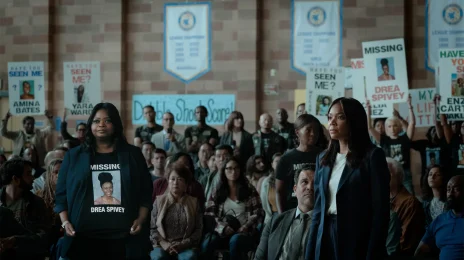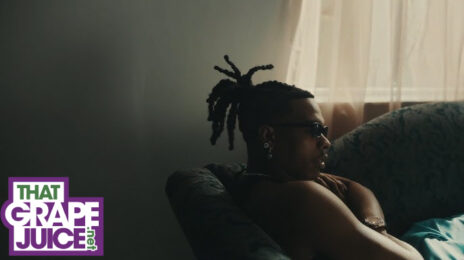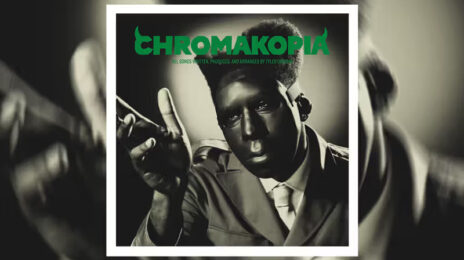Steve McQueen sits down with That Grape Juice to discuss his new movie, ‘Blitz’, being in control of your own narrative and not learning from the lessons of the past.
The director has always been a groundbreaking filmmaker. Indeed, he made waves with his feature debut ‘Hunger,’ and follow-up Shame but he propelled himself into the history books with ’12 Years a Slave.’
Critically acclaimed, the 2013 drama won the Academy Award for Best Picture – making McQueen the first Black director to achieve this prestigious accolade.
Unafraid to push the envelope and ask important questions about race, identity, and history, this is evident in his next movie, ‘Blitz.’ For audiences are lassoed into the dangerous London streets during World War II.
The movie follows nine-year-old George [Elliott Heffernan], who is evacuated to the countryside by his mother, Rita [Saoirse Ronan], to escape the bombings. Defiant and determined to return to his family, George embarks on a journey back home as Rita searches for him.
Check out McQueen’s EXCLUSIVE interview with TGJ’s Adam Davidson.
That Grape Juice: War Dramas are a well-explored genre but what made ‘Blitz’ so fresh and unique?
I don’t know, you tell me! [Laughs] I just wanted to have a situation where we looked at a particular time in history and we did a lot of research about it and wanted to bring things to the surface that I thought were interesting and important and to tell the story through a child’s eyes. It was wonderful to go through this research and work with a historian at the Imperial War Museum to bring these things that are just so amazing to the surface.
What was this research process like? Did you speak with real evacuees to get their stories to inform the story?
When you look at the landscape and what was going on in that situation with the Blitz, there are so many incredible stories and so many incredible narratives. I had the idea of what I wanted to do but I don’t like to put a stencil on things, I like things to tell me and to draw things out.
That was interesting to talk about people like Mickey Davis, for example, this small gentleman who ran this amazing shelter or Ife, the Nigerian air warden who was a law student here that patrolled the Marylebone area or what happened to the real story of people trying to get into the Underground. Even the smallest details of firemen dealing with inadequate equipment, it was very interesting to lay that narrative out to show the landscape of what was going on there.
How important was the character of Ife for George’s journey, both physically and spiritually?
Very important. George reflected on himself as a Black boy and for the first time saw this Black man of authority. It definitely had an effect on him and who he saw himself as because up until that point everything was quite negative about who he was as a person.
When I was watching the movie it reminded me of Homer’s Odyssey – the story of this person finding their way back home and encountering danger… Did you want there to be a mythological aspect to the journey?
No, I’m not saying that I don’t like the idea but I just wanted eyes wide open and using that idea. George had his narrative worked out for him but he did not want to be part of that narrative, he subverted the narrative by jumping off the train. I love the idea of this person taking charge of their own destiny rather than letting things happen to him. Also, through that journey we get an idea of London. There is scale to this journey but also there is intimacy. Doing both at the same time was a feat but that’s what I wanted to portray.
What was it like to recreate the vibrancy of those club scenes? Those were some of my favourite scenes as you could feel the energy in the cinema.
That was amazing, that was incredible with my choreographer, Coral, who is incredible. There are two different types of clubs in our picture: the hoi polloi one and the more down-and-dirty one. It was interesting to go between the two. During wartime, there was lots of joy. It’s like Prince, party like it’s 1999. It’s a different idea, it’s not just about fear, it’s about joy as well.
There are parallels between the events of this movie and what the Middle East is experiencing today. It’s disheartening to see that we haven’t learned the lessons of the past.
Yeah, It is. I don’t think this movie could have come at a more important time than now unfortunately and I imagine that adds to the urgency of it. Again, what’s very important is to see this particular narrative through a child’s eyes and see where we are going wrong as adults.






























